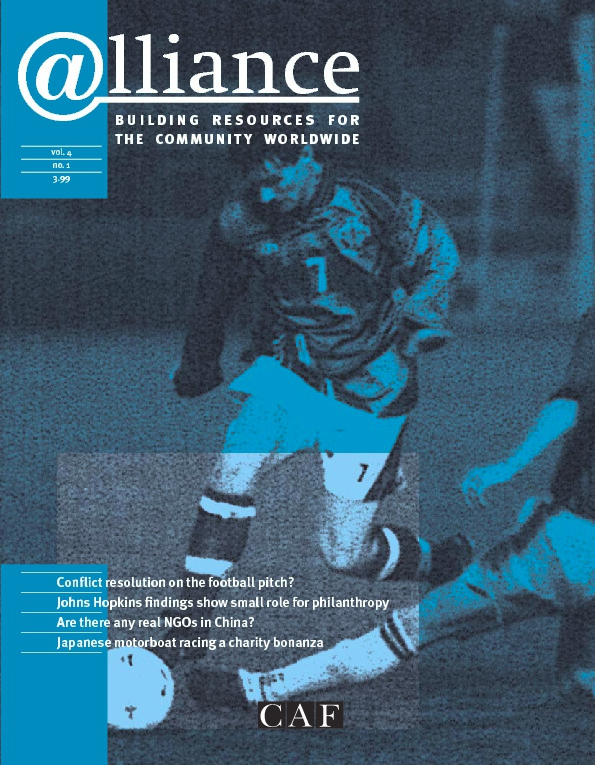I thought, after reading the first few chapters of this book, that I was not going to like it. It seemed at first that one of its goals — to bring together thinking about the non-profit sectors in the North and South — was not going to work. And practically minded readers might be forgiven for finding its academic search for ‘concepts’ and ‘theories’ of non-profit/voluntary action annoying.
More than one chapter, for example, takes pains to figure out why ‘the concept of a non-profit sector’ has not surfaced in the South. This seems a bit like trying to explain why, before 1492, native Americans had not ‘conceptualized’ America.
I was disappointed in a lengthy chapter by Lester Salamon and Helmut Anheier. They have become leaders in comparative non-profit research, and yet in describing the non-profit sectors in five Southern countries — Ghana, Brazil, India, Thailand and Egypt — they make some strong, and in my view contentious, generalizations. They suggest that countries that have most recently emerged from colonialism, that have authoritarian governments, ethnic heterogeneity, a small middle class and a religion other than Protestant Christianity (especially Islam), are liable to have a weaker non-profit sector than others. Bangladesh, however (not part of their study), has had dollops of all these debilitating features and yet has one of the most vibrant, diverse, innovative and professionally competent non-profit sectors anywhere. Is Bangladesh the anomaly, or the limited sample in their study?
Further along, the book becomes more interesting, especially in its exploration of the complex tensions that exist between non-profit vision and action, between what non-profit organizations intend — or say they intend — and what they do, as conditioned by the political economy in which they operate. Marilyn Taylor describes strains and trade-offs in Britain, while Syed Hashemi and Mirza Hassan describe similar problems in Bangladesh.
Rob Paton hits a prominent nail on the head in a chapter entitled ‘The Trouble With Values’. The trouble, he suggests, is not so much values but the way in which popular management literature often misses the real life of non-profit organizations, offering advice that is of little use to managers or the managed. We need to remember, he says, that ‘the ecology of values being enacted in any lively organization will always, and rightly, be subtler and richer than those magnificent specimens captured and mounted in the display cases of mission and value statements’.
Voluntary Action brings together some of today’s most prominent non-profit academics and writers in a lively and interesting collection that is ultimately topical, timely and thought-provoking.
Ian Smillie is an Ottawa-based writer and consultant. His most recent book is The Alms Bazaar: Altruism under fire — nonprofit organizations and international development (IT Publications, 1995).
International Perspectives on Voluntary Action: Reshaping the third sector
edited by David Lewis Earthscan £15.95
To order, phone Littlehampton Book Services.
Tel +44 1903 828 800
Fax +44 1903 828 802
E-mail orders@lbsltd.co.uk


Comments (0)